HOME | ABOUT US | MEDIA KIT | CONTACT US | INQUIRE
HOME | ABOUT US | MEDIA KIT | CONTACT US | INQUIRE

PUBLISHED AUGUST 2024
What makes business in Missouri tick? Start with high-powered executives, blend in a healthy dose of high-achieving non-profit leaders, and top it off with some high-level thinkers in education, the arts, entertainment, sports and more. The fabric of a thriving state is woven with intriguing personalities whose daily labors reinforce the Missouri Value Proposition: This is a special place, well-suited to business ownership, anchoring a career, making a home and raising a family. You’ll see those attributes present themselves again and again with the 2024 installment of 50 Missourians You Should Know, which brings to 700 the number of individuals recognized by Ingram’s since the program launched in 2011. Each of their stories is part of the Show-Me State experience.
 Yemi Akande-Bartsch
Yemi Akande-Bartsch
FOCUS St. Louis, St. Louis
From the moment she graduated from Southwest Baptist University, says Yemi Akande-Bartsch, “I knew my career would be less about climbing ladders and more about building bridges—especially in the civic space.” That’s precisely what she does at FOCUS St. Louis, whose mission is to connect emerging diverse leaders to the broader business community. “I’ve always been driven by the desire to work with people to create purpose, impact and expand their horizon,” she says, and to make a significant difference. With more than 11,000 FOCUS alumni to date, that difference is tangible. “This isn’t just about the workforce of today,” she says. “It’s also about cultivating the workforce of tomorrow. With the right resources, we can continue to develop and support the next generation of leaders who will shape the future of our region.” Akande-Bartsch picked up a pair of master’s degrees and her doctorate from the University of Oklahoma and found a home in St. Louis, where her brother and sister have prominent roles in banking and local government. “The vibrant community and opportunities in the civic space made it the perfect place to plant roots and make an impact,” she says. The stars aligned to bring her to FOCUS, a role that “ticked all the right boxes—an organization whose mission resonated deeply with my passion for civic engagement.”
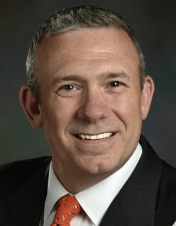 Nick Barto
Nick Barto
BJC Health System, St. Louis
Nick Barto’s rise up the C-suite ranks at what is now BJC Health produced something of a two-fer: His appointment to the role of president coincided with the St. Louis company’s merger with Kansas City’s Saint Luke’s Health System, and he had the dual duties of president for both the parent system and the eastern Missouri division, BJC HealthCare. He came on board at BJC in 2018 as chief financial officer, taking a path to health-care from an outsider’s perspective. After earning his degree in economics from Princeton University, he started his career in New York with an advisory company focused on the biotech and pharmaceutical sectors. A stint with the former Lehman Brothers followed, and he eventually landed in the health-care sector with a provider in Charlotte, N.C., in 2004, followed by his first CFO role with a faith-based system in Denver. Once on board in St. Louis, he directed strategic growth and integration initiatives, among them an important alignment with Washington University’s School of Medicine. He also had a front-row seat in the system’s response to the dramatic financial impact of the 2020 pandemic and helped set up the system’s Business Intelligence and Data Solutions group. He now oversees a system with 14 hospitals, more than 27,000 employees (4,636 of them physicians), and with the western sites included, revenues of more than $10 billion.
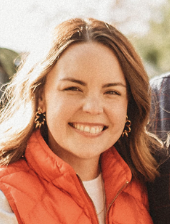 Mollie Buckler
Mollie Buckler
U.S. Rice Producers Association, Sikeston
With degrees in classical studies and higher-education administration, it was only natural that Mollie Buckler would take a career path to … rice production? Yes, Missouri has a rice sector, with output that ranks fourth among states nationwide, and she’s part of it as COO for the U.S. Rice Producers Association. She signed on in 2021 in a mid-career departure from the alumni and collegiate relations roles she’d had at Alabama and Mizzou since 2008. In doing so, this Sikeston native returned to her bootheel roots. “Growing up in my small town with the support system that I had gave me a sense of groundedness and possibility,” she says. “My parents instilled a spirit of confidence in me while ‘always remembering who you are and where you come from,’ as one of my favorite high school teachers would say. A combination of those two things made it possible for me to be open to the opportunities that I’ve been afforded over the last 15 years. … Southeast Missouri is such a special yet overlooked part of our state. I’m passionate about waving the bootheel flag whenever and wherever possible, from Jefferson City to South America.” Rice production took off in the 1960s,” she says, and “thanks to our particular soil types and thousands of years of the Mississippi River’s evolution, bootheel farmland is sort of an anomaly compared to the rest of the state. Our low-lying, rich soil makes southeast Missouri the perfect place to grow rice.”
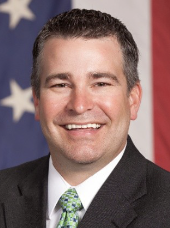 Brent Buerck
Brent Buerck
City of Perryville, Perryville
Perryville native Brent Buerck had a plan: After earning a degree in criminal justice, he spent 13 years working with the Missouri Division of Youth Services and at-risk youth. “I loved it, and my original plan was to retire early, get my doctorate and teach college.” Funny thing about long-range plans: Things change. Buerck headed to Mizzou to work on his master’s degree, and that’s where he took on an interest in local government. “I saw this as an opportunity to work to make people’s lives better,” he says. “I saw it as a place where I could make a tangible difference and improve the world, or at least a very small part of it.” So after securing that master’s in public administration, and with a quiver full of diverse professional-experience arrows—public policy, emergency and project management, human resources, and employee supervision—”I also knew I was at the mid-point in my career in state government, and if I waited too much longer, state retirement would get too close to leave.” In 2009, Perryville came calling, and the hometown fit was perfect in an unusually thriving community of 8,500 souls. “So many of the good things begin and end with our relationships and reputation,” Buerck says of the city. “We work very hard, but we all pull in the same direction. … We don’t look for ‘easy’ as much as we try to do what is ‘best’ for our community, even if it is hard.”
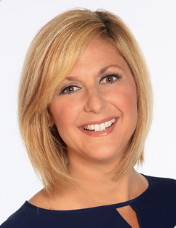 Kimberly Cella
Kimberly Cella
CMT/MPTA, St. Louis
Kimberly Cella’s passion for public transit has her doing double duty as executive director for both Citizens for Modern Transit and for the Missouri Public Transit Association, giving her particular insights into transit needs at the St. Louis and state levels. CMT represents more than 22,000 constituents in the St. Louis region and serves as the management team for MPTA, which advocates for all 32 transit providers in Missouri. Cella is an Affton native who came to the CMT straight out of what is now Truman State University, where she majored in marketing and business administration before earning her MBA at St. Louis U. Now with 30 years at CMT and nine at MPTA, she has seen first-hand how “transit accessibility is critical to communities—whether individuals choose to ride it or not.” There are two reasons, she says, to encourage the advancement of safe, integrated, user-friendly and affordable public transportation systems.” First, “We know public transit is the sole means by which many individuals can access work, school, health care, groceries and entertainment venues.” Beyond that, “We also know that public-transit accessibility significantly impacts local economies by attracting business and industry, sparking development, influencing employee mobility, promoting equality, and employing thousands of residents statewide.” Her teams’ work has helped solidify a 580 percent increase in state transit funding since 2021.
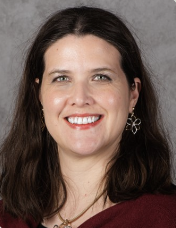 Carolyn Chrisman
Carolyn Chrisman
Chrisman Consulting, Kirksville
Carolyn Chrisman came out of Truman State with a degree in political science, then a master’s in education. In a town of 17,500 residents who experience Brain Drain every graduation season, Chrisman declined to participate: “So many amazing students come to Kirksville every year to go to Truman, I thought, why leave town when a great school is in your backyard!” she says. During her junior year at Truman, she switched from political science, pursued education, then taught history and government for 6½ years, then decided to walk the walk. “The government that most affects its citizens is at the local level,” she says. A former professor invited her to explore an open seat on the city’s planning and zoning commission, secured it, then ran for City Council and won a term at the age of 26. Exposure to the nuances of economic development projects led her to the director’s office for 12 years and, eventually, into the consulting sector for the past year or so. In that role, “I get to help many communities and economic development organizations now,” she says. Some of her region’s strengths include vibrant education, health care, agriculture, and manufacturing sectors, with more challenging aspects in transportation and labor force participation. “Our sweet spot to attract companies comes from an abundance of water and sewer capacity, land, and the ability for small to mid-sized companies to thrive,” she says.
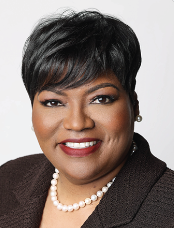 LaTonia Collins Smith
LaTonia Collins Smith
Harris-Stowe State University, St. Louis
Having grown up in St. Louis, navigating the city’s public schools, LaTonia Collins Smith says she “witnessed first-hand the struggles many families in my community faced, from financial hardships to complex social issues.” The experience pointed her toward what is now the University of Central Missouri, where she earned her degree in social work. “What truly inspired me were the social workers who stepped in, offering not just support but hope and practical solutions,” she says. Direct-service roles had an initial appeal, working in child welfare, finding loving foster homes, facilitating adoptions and counseling families. “Little did I know then that this foundation in social work would provide me with invaluable skills—empathy, problem-solving, and a deep understanding of human behavior—that would serve me well in my future career in higher education administration.” That pathway opened while working on a White House initiative to address public health concerns at historically black colleges. “This experience sparked a realization that I could make a significant impact by focusing my career on higher education.” Then came a nine-month part-time position with Harris-Stowe, which turned into a 14-year journey that took her to the president’s office in 2022. Her agenda there is paying off with higher enrollment, especially in STEM tracks, enhanced student support services, new construction, and a new Center for Innovation and Entrepreneurship.
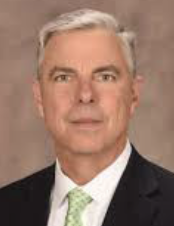 Rockne Corbin
Rockne Corbin
Shelter Insurance, Columbia
Deployments to Panama and the Persian Gulf theater as an Army intelligence officer not only helped Rockne Corbin sharpen his military intelligence skills, they gave him a rare perspective on the concepts of risk and reward, a perspective that would serve him well in business after his service. “Jumping from a plane definitely makes you more comfortable with risk,” he says with a wry chuckle. “But it’s more a measurement of risk vs. reward.” He assesses the scales of both as president and CEO of Shelter Insurance. He took the reins earlier this year after more than 30 years that began in the trenches as a claims representative in central Nebraska. “The thing that drove me to insurance was the reputation of Shelter in the community,” Corbin says. He had become familiar with Columbia while growing up in nearby Jefferson City, didn’t stray far for college with his business degree from Central Missouri, and knew the company, like the military, would present a structured environment. “I love the people, love the mission,” he says. “It’s great to come to work for a company trying to help someone who has had something bad happen in their life or who is trying to be prepared in case something bad happens.” He’s leading a company that topped $3 billion in 2023 revenues, $6.5 billion in assets under management, and had a 2.8 million casualty and life unit count.
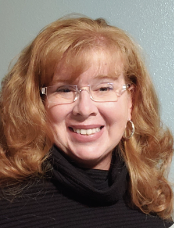 Becky Davis
Becky Davis
Missouri Commission for the Deaf and Hard of Hearing, Jefferson City
Not many people are born into their careers, but Becky Davis comes closest, having been raised in a home with deaf parents in Hallsville, Mo. In her current role as executive director for the state commission addressing challenges for the hearing impaired, her work has both professional and personal aspects—in college, her hearing began to fail, as well. “My first love is teaching,” Davis says. “I wrapped up my teaching degree with an internship at Missouri School for the Deaf. I had always thought I would continue my teaching career there.” Working on her master’s at McDaniel College in Maryland, she studied the principles of bilingual instruction and how to apply them to the American Sign Language and English language for deaf and hard-of-hearing children. After a stint at Indiana School for the Deaf, she moved up to the collegiate level, then returned to the classroom at MSD before being named director of the commission last year. “As someone who learned ASL from birth, and who could hear while I was growing up, I also learned spoken English. That experience is something I covet,” she says. “As someone who now does not hear well, I am now a consumer of those services. Interesting how it has come full circle. My background in education has helped me understand how pieces fit together to affect a person, a family, and a community.”
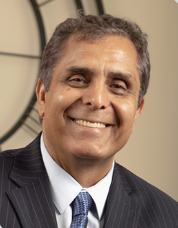 Mo Dehghani
Mo Dehghani
Missouri University of Science & Technology, Rolla
Mo Dehghani is living out two dreams: The first, from childhood in India and a fascination with all things mechanical. The second is playing out in real time as chancellor of Missouri University of Science & Technology, recipient of one of the largest private donations in U.S. history: $300 million. It came from Fred Kummer, an alumnus who had created a St. Louis hospital-building empire. More than just a donation, Dehghani calls it “a catalyst for change. It has given us the means to dream bigger than ever before.” With it, MS&T’s Kummer Institute can reshape “the future of technology, entrepreneurship, and society itself” with Missouri in the forefront of engineering innovation, creating hubs for advanced manufacturing, technology, and bioengineering research. His gateway to America was Louisiana State University for every degree through doctoral before a career with major research institutions including Johns Hopkins University and Lawrence Livermore labs. His day-job calendar is packed, but Dehghani would relish the chance a return to the classroom, even briefly. “I still miss the classroom, as it’s the one place where I can lose track of time,” he muses. “I often dream about adding one mechanical engineering class to my (already busy) schedule. … There’s a certain magic in teaching, where the exchange of ideas refreshes my own thinking and offers a sense of renewal.”
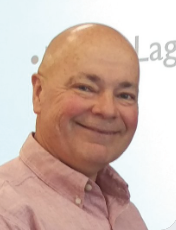 Audie Dennis
Audie Dennis
Boyd Metals, Joplin
After more than a decade in the metals industry, Audie Dennis came to Joplin in 1995 on a role of the dice, buying into the fabrication company Boyd Metals and serving as general manager for the plant there. Nearly 30 years later, the impact he made on the company and on his adopted community was recognized as the city’s Chamber of Commerce designated him Citizen of the Year last spring. It was a fitting tribute to a man who inhaled deeply of the Joplin culture, supporting organizations like the chamber, local Rotary Club and United Way, and non-profits like Renovating Hope Ministries, Active Lifestyle Events, the Creative Learning Alliance, and the alumni association at the University of Arkansas, where he’d earned his degree in marketing. As retirement was looming for Dennis this past year, he had one major company initiative to roll out: A $9.3 million expansion that increased the production footprint at Boyd Metals to 111,000 square feet. The plant serves a four-state area of Missouri, Oklahoma, Arkansas and Texas, producing industrial-grade stainless steel, aluminum, carbon steel and other products that are the backbone of manufacturing. Dennis also flashed some serious civic and athletic chops over the years, running marathons to honor the victims of the Oklahoma City bombing in 1995, then helping found the Joplin Memorial Run after the 2011 tornado that killed 168 people.
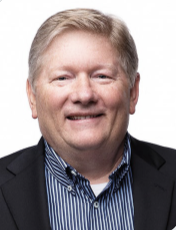 Hal Donaldson
Hal Donaldson
Convoy of Hope, Springfield
“The decisions you make in the next twenty-four hours can change your life and influence the people around you … for good.” Hal Donaldson penned that guidance in “Your Next 24 Hours,” a book that not only spoke to the power of incremental charity but a lifetime of it, as demonstrated by the founder of Springfield-based Convoy of Hope. Inspired by the works of heroic figures like Mother Teresa, he founded the faith-based non-profit in 1994 as a means of giving back. Not in the sense that most business leaders approach “giving back,” but as a paying it forward to all those who had helped his family after a car crash claimed his father’s life in 1969. Often working in tandem with various churches, Convoy of Hope focuses on meeting basic human needs in the face of catastrophe. One glittering example: When the global pandemic hit in 2020, Convoy partnered with churches to deliver 40 million meals to people in need—all within the first 100 days after COVID-19 arrived in the U.S. What sets the non-profit apart from most others is its unrelenting commitment to maximizing impact: Last year, administrative costs were just 7.4 percent of the $638.5 million in contributions, less than half the low end of the range that designates highly efficient charities. In addition to providing food, the organization promotes efforts to help people in impoverished nations grow food and helps break the cycle of poverty with services to help women provide for themselves.
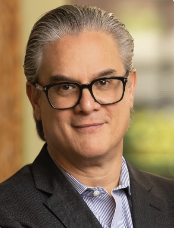 José Duenas
José Duenas
Panera Bread, St. Louis
If you eat, there’s a fair chance your culinary path at some point has crossed that of José Alberto Dueñas. He’s a career fixture in the world of casual dining and consumer products whose road to Missouri reached its destination in March 2023 with his selection as CEO of Panera Brands and Panera Bread. Previous stops along the way have included the Florida-based Darden restaurant group, Latin America and global marketing director for Kellogg’s Pop-Tarts division, and as CEO for Panera operating unit Einstein Bros. Bagels. At Panera, his troops are dispatched to nearly 4,000 locations in 10 countries, staffing not just the main brand but operations of Caribou Coffee and Einstein Bros Bagels. The latter played into his charge at Panera, where he’s brought a focus on what the company calls “winning breakfast” and tinkering with the culture to emphasize the strategic role played by the company’s general managers. José started his career in consumer packaged goods, having held several progressive positions with the Kellogg Company in Latin America and the U.S. from 1995-2012, the most recent of which was Vice President and General Manager of their Pop-Tarts business. He entered the world of consumer packaged goods with Kellogg and now presides over a work force of more than 140,000 across North America, topping $6 billion in sales last year.
Wherever Ken Fasola goes, it seems, big deals follow. As president of a $154 billion health insurer, he’s currently wingman to Centene CEO Sarah London, helping steer the biggest ship in Missouri business—at No. 22 on this year’s Fortune 500 list, it is far and away the biggest enterprise in the state. Shortly before long-time CEO Michael Neidorff wrapped up a storied career of growth by retiring in 2022, he oversaw the $2.2 billion acquisition of Texas-based Magellan Health, where Fasola had been serving as the chief executive. He stayed on after the acquisition, first as executive vice president of Centene’s Health Care Enterprises unit and a member of London’s inner circle. A Penn State graduate who knew early which path he’d take in life—his degree was in health planning and administration—Fasola compiled a leadership history more than three decades deep in the health-care space. He made his way to Magellan after serving as chairman, president, and CEO of HealthMarkets, one of the nation’s largest health insurers and supplemental insurance companies, which was also an acquisition target pocketed by UnitedHealth Group in 2019. Centene has nearly 27.5 million managed-care members, providing Medicaid and Medicare coverage through the Health Insurance Marketplace and the TRICARE program for service members.
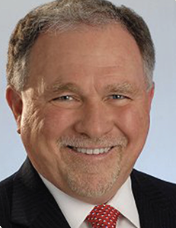 Ron Fitzwater
Ron Fitzwater
City of Jefferson City, Jefferson City
Anyone who believes that government ought to be run more like a business should be paying attention to Missouri’s capital city and Mayor Ron Fitzwater, whose day job is serving as CEO of the Missouri Pharmacy Association. He took the reins of city leadership last year in an electoral cakewalk: He ran unopposed for the job in the April 2023 city election. That followed a six-year run on the Jefferson City Council, with additional time devoted to the planning and zoning committee and the city’s transportation and traffic committee. As he was preparing to assume office, he said after the election that his agenda would be based on one key theme: “We’re open for business in Jefferson City, and we’re going to make good on that promise.” In a post-election interview, he said he wanted to see additional growth for a city of nearly 50,000, but growth done right. “We also want to take care of what we have. We want to make this a beautiful city.” He came in with specific goals: improving public safety, maintaining infrastructure, and addressing housing availability and affordability. Fitzwater earned his degree in accounting from Kent State University in Ohio, then tacked on a master’s in tax accounting from Cleveland State University as his career unfolded. His work with the pharmacy association has made him a staunch advocate for reform of the nation’s embrace of the pharmacy-benefit management sector.
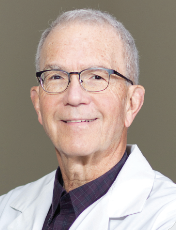 Robert Frederickson
Robert Frederickson
Bothwell Family Medicine Associates, Sedalia
It’s an article of faith for Robert Frederickson: “Everyone,” he declares, “deserves a family doctor.” But even with a bedrock belief in the value and power of medicine delivered at the primary level, Frederickson has been swimming against a demographic and professional current that has brought his craft to the precipice of crisis. Sedalia’s population has only increased about 10 percent since he started his primary-care practice there in 1984, but the nation’s ranks of primary-care physicians have shriveled relative to the increasing population. Frederickson is a Versailles native who was raised in Eldon and attended the University of Missouri-Columbia for the full run through medical school and residency. “I was inspired to pursue a medical career due to my love of biological science and desire to provide service and benefit to others,” he says. “I believe this was rooted in the Christian influences in my life.” Family medicine was appealing for the diversity of conditions treated and the potential for deeper relationships with patients and families. “I think it is amazing,” he says, “to take care of children who are grandchildren of individuals that I had delivered years ago.” In a smaller market like Sedalia, he notes, practicing with limited access to specialty input can be particularly challenging, but patients commonly prefer to have ailments managed close to home if possible.
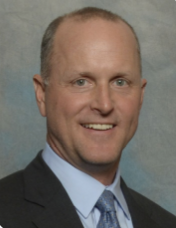 John Griesemer
John Griesemer
Springfield Underground, Springfield
As a fourth-generation Ozarks native, John Griesemer knows the lay of the land—and what lies beneath. Since 2018, he’s been president of Springfield Underground and its affiliated companies in the quarrying/warehousing space. The family business was an option Griesemer pondered briefly after earning a degree in industrial management from Purdue University, but he headed to a more lucrative position in Virginia. Wrong call. “After a short time there, I decided a paycheck did not make up for the decrease in responsibility,” Griesemer says. “During summer jobs, my uncle, Louis Griesemer, allowed me a significant amount of autonomy and I missed that in the large-company atmosphere.” He came back, first in a role in the Kansas City area, then closer to home, and now has a statewide view on the business potential of Missouri geology. The state, he says, “is rich in mineral resources and mining history,” producing lead, zinc, cement, granite and more. “Our Springfield locations are unique due to their elevation on the Ozarks Plateau,” he says, which means their underground mines are relatively dry, and also have drive-in truck access. Griesemer also has a strong civic and professional service record, including a stint as chairman of the board of Mercy Health Springfield Communities, president of the Springfield Catholic Schools board and a member of the board for the National Stone Sand and Gravel Association, among others.
 Samantha Gutting
Samantha Gutting
Branson CVB, Branson
Consider the disadvantage confronting small towns with convention bureaus if they have to go head-to-head with Samantha Gutting to sell their communities: She’s the only one in the nation with a Branson to peddle. How’s that working out for her? Well, in a city with a year-round population of fewer than 13,000, the area drew a remarkable 10.29 million visitors last year. She understands the power of the place. “No question—it is our community,” Gutting says. “Branson is truly unique. I have lived in some of the largest cities in the nation, but when I had my son, I knew I wanted to raise him here … this is home, and the best people are right here. She’s a native of the Table Rock Lake area whose hospitality career took her to some big cities over about 15 years before she came home in 2003. A marketing studies major at Missouri State, she earned a spot on the pre-opening sales team with The Ritz-Carlton Hotel Company and never looked back. “I suppose being from the Branson area, all we knew was tourism and hospitality,” she says. “Many summers were spent working at different attractions or helping my friends work on their parent’s resorts, so I suppose that’s where the hospitality seeds were sewn.” She’s been chief sales officer for the Branson CVB since 2017, taking the job in part, she says, because “I had never experienced the industry from a Chamber/CVB view and was intrigued.”
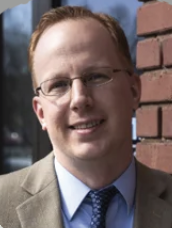 Don Harkey
Don Harkey
People Centric Consulting Group, Springfield
A high school teacher once recognized Don Harkey’s talent for math, suggesting that engineering would be a good career—especially the compensation. Turns out, Harkey is a recovering chemical engineer who now has his own workplace culture consulting firm. “It’s funny looking back,” he says, “that the guy who wants people to love their work was sold by the salary, but there you have it.” A Lincoln native, he earned his degree at Nebraska “because that’s where engineers went at the time.” Over the next decade, with two large Fortune 500 firms, he was surprised at “how teams seemed to work well in some places and poorly in others.” What, he wondered, caused the difference? That’s what led him to his current path and the science of how people work. Still, he says, “It’s hard to leave a job at a world-class company as a senior engineer in your 30s with a family to feed. I finally made the jump when my Dad passed away from ALS. It showed me that life was short and made me ask myself a question, ‘What am I waiting for?’ I made the leap! I miss my Dad terribly. The courage to make the jump was his last gift to me.” Harkey still approaches problem-solving with an engineer’s eye to help clients, who use his guidance to reach engagement levels 20 percentage points higher than the national average, he says. “I got lucky on this when I started the business” in Springfield, he says. “The entrepreneurial community here is super welcoming.”
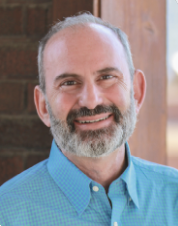 Marc Hahn
Marc Hahn
Kansas City University, Kansas City
For Marc Hahn, medicine was a way to make a tangible difference in people’s lives, first as an anesthesiologist. Medical school administration, then, helped him reach beyond the patients he could touch, extending his impact across tens of thousands of patients through the thousands of physicians trained under his watch as CEO of the state’s largest medical college, Kansas City University. That pathway opened up after 12 years in the Army and to KCU’s lead role in 2013. “Kansas City University’s mission of ‘improving the well-being of the communities we serve’ has been an extension of my personal vision of patient care, allowing me to channel my passion for health care into a leadership role that influences the next generation of medical professionals,” he says. On his watch, that has meant extending the physical reach and impact. “Our two campuses—the original 108-year-old Kansas City campus and the newer 7-year-old Joplin campus—reflect our dedication to improving health outcomes across the state. With two medical schools, bioscience programs, clinical psychology, dental medicine, and other related degree offerings, we are constantly evolving to meet the needs of our communities,” Hahn says. KCU is now the fifth-largest medical school by class size in the U.S., the No. 1 producer of physicians in Missouri (and No. 2 for Kansas), and a top 10 for primary care physicians nationally.
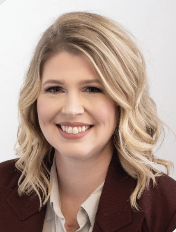 Lori Haun
Lori Haun
Downtown Joplin Alliance, Joplin
Not content to merely decorate her first home in Joplin, Lori Haun drew on her affinity for art and design to make a statement. When she was done, she didn’t just have a place to live, she had a calling. “The process of creating a place that was welcoming and comfortable and decided I would like to do that for others,” she says, so she finished a degree in interior design, minoring in art, started consulting, and added in an operations role for her husband’s art gallery. In 2017, she found a new milieu as executive director of the Downtown Joplin Alliance. After buying a building to rehab, she became an alliance volunteer and board member and took the lead role when it became vacant. “I’ve traveled a lot, and everywhere we go, we seek out the downtowns,” she says. “I saw an opportunity to bring some of that synergy and energy from those places we love to Joplin and to create a space that brings thriving local businesses, fun activities, great food, and beautiful surroundings to our community. Why not Joplin?” While it’s not the future role she expected to be in as a college student, “It is very complementary in that we are creating a place for the community to feel comfortable and welcoming,” Haun says. “We do that through placemaking and beautification efforts, education on buildings, and the appearance of streets and buildings. It’s a bit slower and a bit more challenging to design a downtown than a home, but I think it’s all the more rewarding.”
It started as a straight-up business deal when Rick Huffman bought that first tract of land in Branson back in 1989. The hook was set: In 1992, he acquired Fall Creek Resort, and “that is when I decided to move my family to Branson,” he says. “They came in 1993, and we still reside there in our house at our golf course, Branson Hills Country Club.” Branson would be the launchpad for HCW, the construction company he partners with. “I started in construction at about 16 years old, always liked building things, and then in 1978, I went to work for a financial company in Wichita.” A diversion to New York secured his series 7 and 63 licenses and a few years in the securities and insurance business. “I always had the desire to build things and now I knew how to get the money,” he says. “That is when I went on my own in 1984.” He and two partners were the minds behind Branson Landing, a game-changing $425 million development in the tourist mecca’s Downtown. Hurdles were many and frequent, but it all paid off with a major attraction, generating more than 1,000 jobs. “The city has really transformed over the last 20 years to more outdoor activities and dining and shopping,” Huffman notes. Table Rock Lake, Big Cedar Lodge, and new golf courses are powerful draws, but he sees a need for “more investment in work-force housing to sustain the employees needed and continued entertainment venues with younger acts and fantastic food venues.”
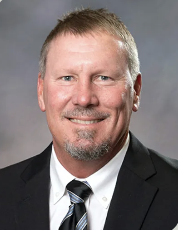 Jason Hulett
Jason Hulett
Lake Regional Medical Center, Osage Beach
When Lake Regional Health System went looking for a new board president earlier this year, the directors assessed a field of candidates and tabbed Jason Hulett, who first joined the Lake board in 2020 and has served on several committees, including finance and strategic planning. The system’s leadership was seeking a business-oriented leader to counsel CEO Kevin McRoberts and found him in Hulett, who has spent three decades with the family-owned Hulett Chevrolet Buick GMC in Camdenton. Hulett is a graduate of nearby Camdenton High School who came away from Truman State University with a degree in business marketing before moving up through the ranks at the dealership, where he serves as dealer principal and president. His influence extends statewide with committee work on behalf of the Missouri Automobile Dealers Association. The keys to his professional success? “I feel it’s important to stay humble, hungry, and upbeat,” Hulett says. “I only treat people the way I would want to be treated. I feel that I am very fair with customers and employees, and I want people to come back to the dealership for everything they need. I feel that if I do these things, I will be successful.” His commitment to civic causes includes board service for the local Citizens Against Domestic Violence and president of the Camdenton Laker Athletics Boosters Club, among others.
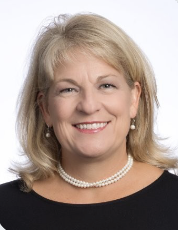 Reachel Jennings Beichley
Reachel Jennings Beichley
Littler, Kansas City
“You stay until the job is done; you do what needs to be done.” That philosophy translates well from a family-run meat processing business in New Franklin to a big-city law firm. At least it did for Reachel Jennings Beichley, a practice director for the Littler law firm in Kansas City. That mindset, she says, lends itself to whatever your position or endeavor might be, “whether that’s going to law school or with the current position I have now, where things must get done. It was just something you took with you.” The law wasn’t her first calling; she spent three years teaching at Hannibal High School, where she went into the task brimming with optimism about the potential to impact young minds. But seeking a bigger challenge, she headed to law school at Mizzou, then career stops as an appellate court law clerk, law firm M&A specialist, executive leadership at MRIGlobal, and then back to practice with Littler. Despite relishing the work she was doing for what is now Husch Blackwell, she ran into a situation that, she says, “probably happens to a lot of women. I had a baby, and my husband was an architect who was working all the time, traveling all the time—I needed to make a difficult decision for my family.” The research firm offered a perfect part-time fit until her son reached school age. As a federal contractor, MRIGlobal had plenty of regulatory and contractor-related work that was, she says, “tricky and meticulous, but you have to do it.”
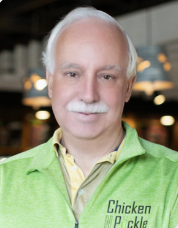 Dave Johnson
Dave Johnson
Maxus Properties/Chicken N Pickle, Kansas City
For 10 years after earning his degree at the University of Missouri-Columbia, Dave Johnson learned the ins and outs of real-estate financing and transactions at the global accounting firm Arthur Andersen & Co. Then he took what he’d learned and established Maxus Properties trust, which now owns multifamily residential units from the Midwest to the Gulf Coast, and as far away as California, Florida and Tennessee. Its affiliated REIT, Maxus Realty Trust, Inc., is the investor-owned arm formed in 1984 and traded on the over-the-counter market. He’s a licensed real-estate broker and a certified public accountant but there’s more to his entrepreneurship than bean-counting. Johnson saw another opportunity emerging in 2017 when he bought a vacant building in North Kansas City, overhauled it to incorporate pickleball courts and on-site dining, and Chicken N Pickle was born. It now has two area locations and six others in Arizona, Texas, Arizona, Indiana and Colorado, with seven more expected to be open in early 2025. The sport involves something of a down-sized tennis court, but with large ping-pong-style paddles, and is considered easier on the knees (especially for older players) than trying to cover a full-size tennis court, even with doubles. Even with two jobs, Johnson keeps his calendar full as controlling shareholder of First Missouri Bank, based in Brookfield. He also has a philanthropic side that prompted a $2 million gift to his alma mater’s athletic department.
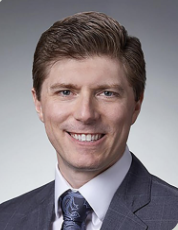 Adam Kautzner
Adam Kautzner
Express Scripts, St. Louis
There is a deeply personal aspect to Adam Kautzner’s leadership as president of Express Scripts and the parent Evernorth’s care-management division: As of 2024, he’s celebrating 10 years cancer-free following a melanoma diagnosis. “Reaching this milestone has prompted me to reflect on where my cancer journey started and how I got to where I am today—as a parent, husband, and leader of Evernorth Care Solutions and Express Scripts,” he posted in celebration of that milestone. Express Scripts became part of Cigna in a 2018 deal worth $67 billion, and when it needed a new president early last year, it turned to Kautzner, then a 15-year veteran who had started as a clinical product manager in 2008. Not only did it get a leader who learned aspects of the organization on his rise through the ranks, it got a doctor—literally. Kautzner holds a PharmD degree from the University of Health Sciences in St. Louis. He also holds one of the rarer medical certifications you’ll find anywhere; his coursework at Purdue University qualified him as one of fewer than 400 nuclear pharmacists in the United States. He heads a pharmacy-benefit management company that, No. 1, helps an estimated 100 million Americans acquire needed medications, and No. 2, keeps them on track with dosage and frequency. He’s a native of the St. Louis suburb of Hillsboro.
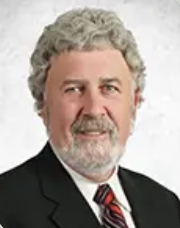 Mike Kohlfeld
Mike Kohlfeld
Kohlfeld Distributing Co., Cape Girardeau
Across southeast and into Arkansas, one name stands tall in beer, wine and liquor distribution: Kohlfeld. That would be Kohlfeld Companies, run by second-generation owner Mike Kohlfeld, a distributor whose grip on consumer brands is virtually unmatched: The MillerCoors family of domestic beers, regional favorites like Shiner Bock and Lone Star out of Texas, niche favorites like Mickey’s Malt Liquor, Hamm’s and Olde English 800 and more. On the import side, continental staples Heineken, Newcastle and Guinness, as well as New World favorites Dos Equis, Modelo and Corona, and nearly two dozen craft brewery brands. The company was founded in Cape Girardeau in 1968 by Leo and Blanche Kohlfeld, who sold it to Mike and his brother, Mark, in 1991. They set about expanding the footprint from about half a dozen counties to cover nearly a score in the southeast region, plus three in Arkansas, by acquiring other distributors and beefing up their product lines. Outside the office, Mike Kohlfeld has served on the board of directors for SoutheastHEALTH since 1992, is a former board chairman, and has been active with the booster organization for his alma mater, Southeast Missouri State University. Those outside interests also include rugby: He was the founding sponsor of the Kohlfeld Scorpions back in 1972.
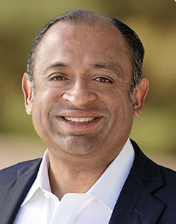 Ram Krishnan
Ram Krishnan
Emerson Electric, St. Louis
With a mechanical engineering degree in hand from the Indian Institute of Technology, Ram Krishnan came to the United States in 1992 intent on expanding his skills at Rensselaer Polytechnic Institute outside of Albany, N.Y. Even when that mission was accomplished, Krishnan wasn’t done—it was off to Xavier University in Cincinnati for his MBA in finance. With both the technical background and the financial acumen, Krishnan has become an increasingly influential figure for Emerson, where he came on board nearly 20 years ago and today is executive vice president and chief operating officer. Of late, much of his attention has been diverted to what he calls the digitization of manufacturing, with Emerson taking a lead role in the process to maintain its competitive position as a global manufacturing tech and software company with 67,000 employees at 70 global locations and revenues of $15.2 billion. “We knew we had an opportunity to strengthen our business and ability to help customers if we made a fundamental shift to a cohesive, focused global automation leader, with differentiated capabilities across a diverse set of end markets,” he wrote as he celebrated 30 years with the company this spring. “I have seen our operations from all aspects and have found that with every disruption comes an opportunity. I see my role as bridging the gap between our potential on the horizon and the path to reach it.”
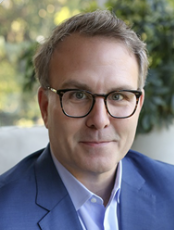 Mark LaVigne
Mark LaVigne
Energizer Holdings, St. Louis
The toughest job in the C-suites at Energizer Holdings might well belong to the consumer-product giant’s general counsel because odds are, his boss will be just as well-versed in corporate law. That would be Mark LaVigne, who himself held that role when he came on board at Energizer following a 12-year run at the Bryan Cave law firm, where his practice focused on business and transactional counseling and mergers and acquisitions. His move through Energizer’s leadership ranks has been swift: From assistant general counsel in 2010, he made general counsel in 2012, COO in 2015, and president in 2019. In January 2021, he succeeded the retiring Alan Hoskins as chief executive officer for a company with 5,800 employees on six continents and revenues that top $3 billion a year. As the name suggests, Energizer is into batteries, and in a big way. In addition to its eponymous brands, it produces Eveready and Rayovac batteries domestically and the European brand VARTA, and has a line of auto-care products. In recent quarters, LaVigne says, sales have consistently edged up, consumer preferences are trending toward premium products at higher prices, and the company continues an aggressive debt-reduction strategy that should help drive shareholder value. LaVigne is a Notre Dame graduate who earned his law degree from Saint Louis University, and his work outside the office includes the board of directors for La-Z-Boy.
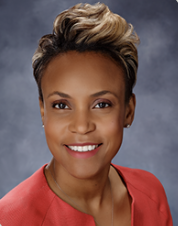 Darline Mabins
Darline Mabins
Community Partnership of the Ozarks, Springfield
The hurdles Darline Mabins had to overcome early in life are, for most people, unimaginable: A vehicle accident claimed the lives of her mother and a brother in their native Haiti. But from that tragedy, she found a new life and a new hope after her father remarried, came to the States, and settled in the Kansas City area. She would go on to college at Northwest Missouri State, finish her fine arts degree in Springfield, and enter the world of … banking. “I needed to eat; starving artist wouldn’t work for me.” Through a friend, she connected with a banker who had an opportunity, eventually moving into the management ranks at Arvest. “I started as a teller until I could figure out my next step,” she says, but then life came calling—she got married, stayed in town, and moved up the ranks from teller to management. Through all that, there was an inkling that non-profit work might be calling her. First, as executive director for the Multicultural Business Association in Springfield, then as equity director for the Community Partnership of the Ozarks. Oh, and she’s also part owner of a plumbing company. In a community that remains 83 percent white, there are ample opportunities to demonstrate the social value of equitable business practices—especially with the coming changes. “The most change in demographics here is actually people of two or more races,” Mabins notes, “but while the overall population is 14 percent diverse, the public school enrollment is 30 percent diverse.”
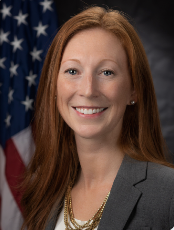 Meg McCollister
Meg McCollister
EPA Region VII, Kansas City
She did her dead-level best to get away, leaving her native Kansas City along with her husband for sunny California, a target-rich environment for someone schooled in environmental law. But as so many do, Meg McCollister and her husband felt the hometown pull as the family grew, bringing their work back closer to family. Hers is work grounded in a sense of serving a greater good. Both of her parents were lawyers, so “We were a public-service family,” McCollister says. “I didn’t necessarily know that at the time, but it was huge for the values that my parents instilled in me.” That public service carries on today as the lead administrator for the Environmental Protection Agency’s Region VII, following her December 2021 appointment by President Biden. It’s the type of work, if not the exact role, that she envisioned while earning her law degree from UMKC in 2011. An internship with U.S. Rep. Emanuel Cleaver further inspired her when he would regale the staff with accounts of having been to Greenland and witnessing the calving of icebergs from glaciers, which were attributed to changes in the broader climate. “That had a huge impact on him and all of us listening to him talk about that,” McCollister says. For Region VII, that means a particular focus on agriculture-related issues and land use—roughly twice the proportion of farmland as the national average. “That has unique aspects for Missouri in particular,” she says, “and one aspect is from active lead mining. That’s a really big issue here.”
 Tim Melvin
Tim Melvin
Kawasaki Motors, Maryville
The production philosophy for Kawasaki Motors Manufacturing was grounded in a simple premise: Build it where you sell it. To that extent, the company purchased a vacant building in Maryville in the late 1980s, zeroing in on that location in part because of the work ethic that defines Missouri employees. One of those was Tim Melvin, who started as an assembly line supervisor and 35 years later is human resources manager for one of the biggest private-sector employers in northwest Missouri. Workers there are on the job around the clock, filling three shifts to produce engines for walk-behind lawnmowers and other powered equipment. Over the years, the Maryville plant has turned out engines for lawn and garden equipment, floor buffers—even rice pickers in Japan. Today, the sprawling facility covers more than 700,000 square feet on 113 acres employing over 1,000 people, about two-thirds of whom are from Maryville and surrounding Nodaway County. But the pull of a manufacturing job paycheck draws in hundreds more from outside the county. It took six years for Melvin and his colleagues to reach the 1 million mark in engine production, but within the past decade, workers had closed that pace to just 24 months. Demand for the company’s products has been so strong—and the benefits of siting a plant in Missouri consistently validated—that Kawasaki opened an additional plant in Boonville in 2022, with nearly 300 more employees.
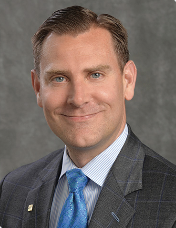 Andy Miedler
Andy Miedler
Edward Jones, St. Louis
Andy Miedler has a big job with a big company—chief financial officer for one of the nation’s biggest investment advisory firms, St. Louis-based Edward Jones, which has an $1.8 trillion in client assets under management. Yes: Trillion. In that role, he’s responsible for the firm’s finance division, and he’s a member of the firm’s Enterprise Leadership Team, advising leadership on strategies that can create additional value for clients. Graduating summa cum laude with an accounting degree at Mizzou, and following that up with a master’s in accountancy, were impressive in their own right, but those achievements only hinted at what was in store for this native of Moberly. After brief stints with Arthur Andersen and PricewaterhouseCoopers, he signed on with Edward Jones in 2002—just six years out of Moberly High—and moved up from equity analyst to partner in 2011, when he was tabbed to lead the capital markets unit, and became CFO a decade later. His ties to Moberly have remained strong; in 2015, he was inducted into the Moberly Public Schools Foundation Hall of Fame and later served as a guest speaker at the local Rotary Club’s annual banquet recognizing the school’s highest academic achievers. A certified financial analyst, he’s also a member of the CFA Institute, the CFA Society of St. Louis, the American Institute of Certified Public Accountants, and the Missouri Society of Certified Public Accountants.
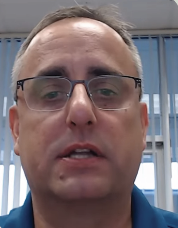 John Mikolajczyk
John Mikolajczyk
Dogwood Canyon, Lampe
If you’ve ever seen Johnny Morris’ version of the Ozarks at its idyllic best—Dogwood Canyon—you might agree with our assessment that John Mikolajczyk has perhaps the best job in the world. After all, he gets to work there as director of operations for that 10,000-acre natural preserve, as well as with other elements of Morris’ outdoor-life empire: the Wonders of Wildlife Museum and Aquarium up U.S. 65 in Springfield, the Ozarks Heritage Preserve at the Top of the Rock development just up the hill from Morris’ Big Cedar Lodge, and with the Johnny Morris Foundation. Mikolajczyk began his journey to the Ozarks with a degree in business administration and management from Aquinas College and spent nearly 13 years with SeaWorld Parks and Entertainment, both as director of operations and human resources manager. A short stint as director of hospitality and retail with an Indiana winery led to the Fort Wayne Children’s Zoo, where he managed operations for three years before coming aboard the Morris empire in 2018. His fingerprints are on some of the most popular attractions in the Show-Me State; Mikolajczyk’s arrival in the Ozarks came just months after the opening of Wonders of Wildlife, which immediately broke into the tourism sectors of the nation’s most popular attractions and has drawn more visitors since its opening, 6.5 million, than Missouri has residents (6.2 million).
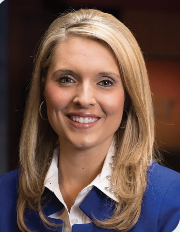 Tyne Morgan
Tyne Morgan
U.S. Farm Report, Farm Journal, Orrick
The HR staff for Farm Journal Media might have hit the ceiling in their excitement when the resume came in for a reporter back in 2012: The candidate had nearly five years of experience with global ag producer Monsanto, including web communications management and multimedia skills. She had previous farm broadcast experience with Learfield Communications while earning an ag journalism degree from Mizzou, and other media experience that went back to high school. And photogenic? She was the 2006 Missouri State Fair Farm Queen. So, yes, Tyne Morgan was the complete package when she came on board for the ag-reporting specialists. She’s made a name for herself in farming circles as a national reporter and host of the U.S. Farm Report. This native of Lexington bills herself as a Missouri girl with farm roots that run three generations deep. Hosting the farm report program, she says, is her dream job. Not hard to understand why, given that her youth revolved around that lifestyle through Future Farmers of America programs, a high-school gig doing daily farm market updates for local station KMZU, and while at Mizzou, interning for Learfield’s Brownfield Ag News. The mother of two also has carved out a niche on X, with more than 26,000 followers, and has published nearly 1,900 articles for outlets like Drovers, Dairy Herd Management, AgWeb and Farm Journal’s Pork.
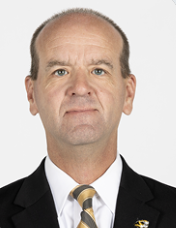 Eric Morrison
Eric Morrison
University of Missouri, Columbia
Give Eric Morrison full marks for timing: After a career in business at various Columbia institutions, he came back to where it all started at his alma mater, Mizzou, earlier this summer—just as the college football seers and sages are designating the Tigers as likely candidates for a shot at the national championship. In July, he was named deputy athletic director and chief of external relations. Morrison’s ties to Columbia run to a portion of his childhood when his father was working on a PhD at MU. The family returned to Eric’s native Quincy, Ill., but after high school, he headed to Columbia for a communications degree. He also became gifted enough with the trumpet to earn a spot in the Marching Mizzou band (and still dabbles in that skill with his seventh-grade son). In school, he envisioned a career in sports or athletics and spent nearly a decade at his alma mater in the athletic department. Connections made during those years pulled him into financial services in 2007, first in business development for former MU basketball legend John Sundvold at Sundvold Financial, then 12 years at Providence Bank and its successor, First Mid Bank & Trust, reaching the rank of community bank president. When the role in the athletics department came open, Morrison was immediately intrigued; based on “a 20-year relationship with Laird Veatch (the new athletic director and his new boss) and the vision for Mizzou Athletics led by the university’s leadership,” he says.
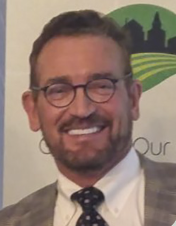 Chip Moxley
Chip Moxley
W. C. Tingle Co., Lee’s Summit
Pull out any of the individual bits in his life story, and maybe Chip Moxley is not in Lee’s Summit as owner of a multistate distributor of flooring products: If he’d stayed in law school at MU instead of dabbling in accounting; if he’d stuck with corporate accounting instead of returning to the business his father was running; if the family that owned W.C. Tingle had an heir who could take the handoff. But none of that happened, so for the past 35 years, Moxley has steered the company through various upheavals in the flooring industry. Those started with the advent of big-box stores like Payless Cashways in its heyday, then Home Depot and Lowe’s. The pressure on small distributors Moxley says, “was get bigger, or get out.” In 1989, he left corporate accounting for the place where he’d spent summers as a teen and before long, was president amid profound changes. “I had to do buyouts with four for five distributors,” he says, “and that was a lot of work to go from a $15 million company to $50 million almost instantly.” Bigger also compelled a more strategic review of operations. Serving a corridor from St. Louis to Denver meant being closer to I-70, so he moved from North Kansas City to Lee’s Summit. It didn’t take long for him to grasp the role that small business played there, drawing him into various educational causes, the chamber and the Saint Luke’s East Hospital board, among others. From that, he says, he learned that “we really need more business people to step up and get involved.”
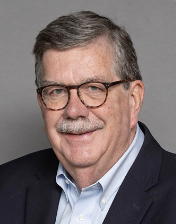 Dan Musser
Dan Musser
Newmark Zimmer, Kansas City
When you think of MIT programs, does a master’s degree in real estate come immediately to mind? No? Well, maybe that’s why Dan Musser was the only Midwesterner in a class of 35 selected for studies there after an early career stab at architecture left him wondering what the opportunities looked like elsewhere in the development game. His design background might have helped with admission, but a touch of Midwestern diversity could have been a factor in his selection at the age of 35. “It was a great experience, with both an academic and real-world education that changed the course of my career.” And what a career: His fingerprints are all over $3.8 billion in projects in the Kansas City region, from Jackson County’s new $300 million detention center to the Johnson County Courthouse, the former Sprint Campus in Overland Park, the National Nuclear Security Campus in south Kansas City and many more. He grew up in St. Joseph as a Michigan transplant, married there, and saw Kansas City as the right-size step up after graduating from K-State. Despite success in that space, he felt as though developer clients treated architects as commodities and sought to move forward in the process. “I was never going to be a design architect and thought managing development could be more lucrative,” he says, and he has a trophy case full of industry recognition trophies to show he made the right call.
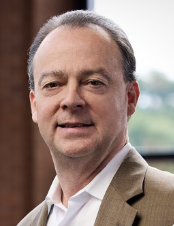 David Nestor
David Nestor
Enterprise Mobility, St. Louis
What a ride it’s been for David Nestor. When his journey began back in 1985, the ink was still wet on his marketing diploma from Wright State University, and he started as a management trainee for Enterprise Rent-A-Car. The latest stop came in 2022 when he was named executive vice president and chief operating officer, tasked with oversight for global operations, global franchising, business rental, replacement and leisure sales, and product and mobility solutions. His career stops along the way, almost reading like a map of Enterprise locations: regional vice president from 1993-96, then off to Chicago as vice president of rental. It was off to Nevada in 2001 for the top job with the company’s subsidiary there. Two years later, he arrived at the corporate headquarters in St. Louis as the vice president overseeing all Southeast subsidiaries. From there, he made senior vice president and in 2008, he was charged with responsibility for West Coast operations. Oversight of airport operations followed in 2013, and in 2016, Nestor was made senior vice president of North American operations, which put him at the helm of operations in the U.S., Canada, and Puerto Rico. His final stop before taking on his current duties was as executive vice president for global operations, starting in 2019. Outside the office, Nestor brings that wealth of operational acumen to the board of Our Little Haven, a nonprofit that works to provide safe spaces for young victims of abuse.
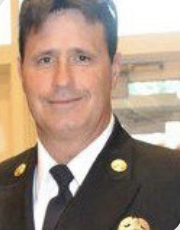 Billy Parker
Billy Parker
Security Consultant, Camdenton
There are two defining classes of people around the Lake of the Ozarks: One is the affluent and elite who pour in on weekends from summer to fall or have second homes year-round. The other represents the long-time residents and service workers who make the tourism economy tick. There’s a significant gulf between the two, and Billy Parker sees it every day. A Brooklyn transplant and retired firefighter from the Kansas City area who continues to work as a consultant for Homeland Security, picking up other work as opportunities arise—such as captain on charter boats—Parker says the most immediate need in the lake region is for more housing and not just mini-mansions. Development at the lake in recent years means “affordable housing is totally gone,” he says. “People struggle to make a living with housing. If you don’t own your own business or aren’t a professional type, it can be tough to live here.” The ramifications of that for local business owners are obvious: A lot of talented young workers won’t stick around, leaving a service-based economy starved for dedicated staff that will stick around long-term. Compounding that, he says, “My sense of local government is that they are very reluctant to raise taxes and tax anybody around here. There’s nothing wrong with that in principle, but it’s to a fault—firefighters, police, paramedics—if they’re not paid well, the systems are taxed during the summer months with high demand.”
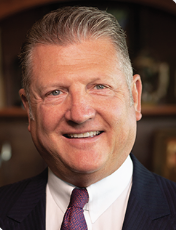 John Proper
John Proper
ProServ Business Systems, St. Joseph
Odds are that when John Proper was growing up on a farm near the northeast Missouri burg of Shelbina, he didn’t know that his future awaited him just 155 miles dead west down U.S. Highway 36. But fate, mixed with good doses of farm-life work ethic and the competitive fire one develops being raised with two brothers, would take him down that road and to success in the business-equipment sector. Proper was still a teenager when he went to work for a local business-office supplier as a technician. Anyone acquainted with the mechanical-engineering skills that are a natural part of life on the farm could see the potential there, and one who did—his boss—offered him a technician position in St Joseph. It wasn’t long before he spotted an opportunity: the company he’d signed on had hit a rough patch; it had lost a major client, had few other prospects, no sales orders and no credit. Proper stepped in by selling the beater of a car that he’d driven to town and betting on himself—investing to become part-owner. And at age 20, Proper was the youngest authorized Savin Copier dealer in company history. From there, he went on to launch ProServ Business Systems, offering IT services and equipment for business client communication, information, data and document needs, including power and cabling, operating systems and servers, copiers and other devices. Over the years, Proper and his staff of more than 40 have amassed a history of service to more than 1,700 clients in 45 states.
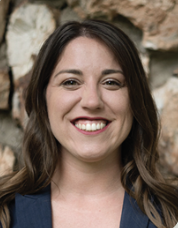 Crystal Quade
Crystal Quade
Missouri House, Springfield
Being a Democrat in a solid-red state like Missouri can often have a David-and-Goliath feel to it, but even then, Crystal Quade isn’t afraid to pick up the slingshot. She wielded it to impressive effect in the August primary elections, defeating an opponent of a prominent Springfield family by nearly 20 percentage points. Her reward for that? Going up against Republican nominee Mike Kehoe, the sitting lieutenant governor, in November. His boss, the soon-to-be-former Gov. Mike Parson, won the office by 9 and 16 points in the previous two elections. The scope of the challenge isn’t lost on Quade, but then, she’s never wavered in the face of long odds. The first in her family to go to college, she entered state politics in 2016, earning a seat in the Missouri House with a roughly 10-point margin in Springfield’s 132nd District. She made an immediate impact, earning seats on the House Budget Committee, the Committee on Government Efficiencies, the Joint Committee on Child Abuse and Neglect, and in her first term was chosen to chair the Democratic House caucus. With voters endorsing her in each of the next three election cycles, she eventually rose to minority leader in a chamber where the opposition has often held a super-majority. Her campaign Web site stresses reproductive rights as a cornerstone of her gubernatorial agenda, and she’s secured endorsements from organizations traditionally affiliated with Democratic candidates, including labor unions and groups that advocate for women’s issues.
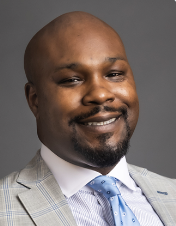 Jeron Ravin
Jeron Ravin
Swope Health, Kansas City
The odds were against Jeron Ravin when he applied for his first CEO-level position in health care. His competition included experienced executives from around the country. He didn’t have many Kansas City connections. But Swope Health saw something in him and five years later, he oversees an organization that has improved health outcomes, significantly increased staffing, raised $50 million for development, and been recognized by various accrediting agencies at the state and local levels. “We have,” he says with a hint of understatement, “been running pretty fast.” For this native Texan, taking on Swope Health was a validation of his choice to become a leader. “I’ve always wanted to go where I can be the most impactful,” he says. “Biologists go to med school; I went to law school and got my master’s in health-care leadership. I’ve always felt that the best way to be impactful with health systems is to think bigger and bolder.” At Swope, he’s raised the employee count by two-thirds (from 419 to 700) and expanding services to 11 locations. Swope Health, he says, “is a very interesting health system. It’s east of Troost, so a majority of patients are economically disadvantaged. It’s difficult to run a business when a large majority of patients aren’t often able to pay the full amount for their care. But if we could do anything, it’s get care to people who otherwise would not be able to access it, and we had all the right ingredients to do that.”
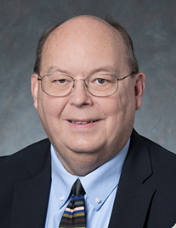 Bernie Rhodes
Bernie Rhodes
Lathrop GPM, Kansas City
Bernie Rhodes’ law-enforcement career ended nearly 20 years before it could even have begun. “I came home from kindergarten with a picture of red cows eating brown grass,” he recalls. “Diagnosed as color blind. I was devastated because I’d wanted to be a cop. It’s hard to catch the bad guy in the red car if you can’t see red.” But he pulled the early pivot and focused on law. Not just as a lawyer but a litigator, the courtroom gladiators of the profession, where he’s on a 12-year run with recognition in Best Lawyers in America for his work in the national trial and appellate practice at Lathrop GPM. A particular favorite within that line involved 1st Amendment issues, an interest he picked up in law school at Fordham’s law school. “It seems like I’ve spent half my time in newsrooms counseling clients on what they can and can’t say and the other half in courtrooms when they don’t bother to check with me in advance.” Notable cases include last year’s police raid on the Marion Record in central Kansas, representing the publisher. Being an effective litigator, he says, requires effective communication, especially with the crafting of legal briefs. And it means realizing that while you might understand the complexities of a case, the judge might not. Again, that’s where clarity of thought comes in. A final quality: relating to people who sit on juries. There’s a lot to be said for being likable. Still, Rhodes says, “My client doesn’t hire me to be civil; he hires me to win.”
 Charlie Shields
Charlie Shields
University Health, Kansas City
Meet Charlie Shields, Connector of Dots. Over the course of a career that has taken him from private-sector employment to public office at the local and state levels and into health care administration at the highest levels, Shields has amassed the depth of experience that produces a succinct 30,000-foot perspective like this: “Education,” he has often said, “is the No. 1 determinant of economic status, and economic status is the No. 1 determinant of health status.” At 28, his public service began with an appointment to a vacant seat on the Mid-Buchanan R-V school board, and three years later, he headed to the Missouri House as the first Republican elected in Buchanan County in nearly 45 years. He was re-elected five times, was elected to the Senate in 2002, and continued his legislative work on committees linked to key issues in education, life sciences and health care. All would serve him well in 2010 when he joined Truman Medical Centers, now University Health, where he’s CEO. His journey into health care was framed in part by a powerful mentoring influence. “Lowell Kruse, former CEO of what was then Heartland Health in Saint Joseph, taught me to think in five to 10-year time frames and never forget the positive impact a health-care system can have on the community,” Shields says. At University Health, he oversees an urban medical center (and a near-suburb hospital) that’s considered a safety-net hospital, serving a population with particular health challenges—and the financial challenges to pay for it.
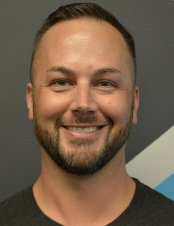 Chris Smith
Chris Smith
NextStep Kansas City, Kansas City
A passion for sports, fitness, and science, says Chris Smith, led to a degree in kinesiology at K-State. But “While I knew I wanted to work with people, I wasn’t interested in a traditional rehabilitation role,” he says. “Kinesiology offered a diverse range of opportunities to delve deeper into the human body and apply that knowledge to various fields within sports and fitness.” He does that daily at NextStep Kansas City, which goes beyond sports injuries to focus on a critical need for rehabilitation services—spinal injuries. While he found traditional personal training fulfilling at first, “I realized it wasn’t aligning with my long-term aspirations,” he says. “When I discovered NextStep Kansas City was preparing to open in 2008, I saw it as an opportunity to combine greater stability with a more meaningful purpose.” For one, the new role was far more demanding than previous positions,” he says, “requiring me to re-evaluate and expand my knowledge in several areas. I was also able to take on additional responsibilities to help establish the organization’s foundation.” True motivation, though, came through the individuals he worked with and their resilience in overcoming the challenges of living with paralysis. Due to insurance limitations, many individuals couldn’t afford the clinic’s services in the early years, but generous donations and fund-raising efforts have driven the expansion of NextStep’s financial aid program and it now serves more clients than ever before.
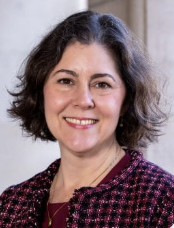 Beverly Wendland
Beverly Wendland
Washington University, St. Louis
When Washington University settled on Beverly Wendland as its provost in 2020, it was getting the complete package: A successful higher-education administrator, a proven researcher, and experience in a role that has become an increasingly vital part of the mission for research universities: Fundraising. As dean of arts and sciences at the prestigious Johns Hopkins University, she had overseen a capital campaign that raised an impressive $747 million. She also played a key role in establishing an institute focused on research and teaching as means to strengthen global democracy. At WashU, she’s the right hand of Chancellor Andrew Martin, serving as both provost and executive vice chancellor for academic affairs. Her mandate is broad: She’s tasked with setting the university’s academic strategy through collaborations with deans, faculty, and other groups, all focused on driving student success for undergraduates and graduates alike. Wendland earned her bachelor’s degree in bioengineering from the University of California-San Diego, then went to Stanford for a doctoral degree in neurosciences. In the years that followed, she has also compiled a record of research in cellular processes. Martin also tasked her with leading the strategic Here and Next initiative, WashU’s 10-year strategic vision that required 18 months of work to gather input from thousands of students, faculty, staff, alumni and community partners.
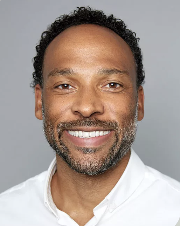 Stephen Westbrooks
Stephen Westbrooks
IFF, St. Louis
In a nation that has awakened to the role that capital—or lack of access to it—plays in the lingering debate about economic equality, Stephen Westbrooks is at the tip of the spear with efforts to bridge the dollar divide. A St. Louis native who earned his degree in economics from Vanderbilt University, Westbrooks initially considered an entrepreneur’s path in life. “I was in college during the dot-com boom,” he says. “That influenced my decision to focus on economics, as I saw it as a pathway to a career in business/finance.” He followed that up with an MBA from his hometown, Washington University. “I wanted to combine the theoretical knowledge from a degree in economics with a more practical understanding of finance and accounting. … The practical knowledge and skillset learned, plus the actual MBA degree, created a pathway for obtaining more intensive finance positions that I’ve leveraged for my entire career to date.” He’s director of a region that includes St. Louis for IFF, work that he says “ensures that capital can flow to communities, urban or rural, that have been historically overlooked for investment. It is incredibly rewarding to land capital into high-impact community development projects led by strong, committed and passionate leaders who are the unsung heroes of our communities.” He has worked with hundreds of incredible organizations and nonprofit leaders, creating significant impacts across the state.
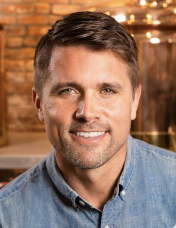 Brendan Whitworth
Brendan Whitworth
Anheuser-Busch, St. Louis
Brendan Whitworth has been through bigger battles—he was, after all, a Marine officer who served in Iraq, then worked for the CIA—so the chief executive for Anheuser-Busch entered the 2023 Bud Light marketing fiasco hard-wired with a key leadership trait: Accountability. “As the CEO, everything we do here, I’m accountable for,” he said during a CBS interview shortly after the Dylan Mulvaney episode sparked a consumer backlash that cratered Bud Light sales. His work since then has been to regain the trust from a market segment offended by corporate overreach into social issues. But it’s not, he said, a concern of A-B alone: “There’s a big social conversation taking place right now, and big brands are right in the middle of it,” he said. “It’s not just our industry or Bud Light. It’s happening in retail and happening in fast food. And so for us, what we need to understand, deeply understand, and appreciate is the consumer and what they want, what they care about, and what they expect from big brands.” Whitworth earned his degree in economics from Bucknell in 1998, then an MBA from Harvard, working toward it while serving in Iraq. He was in the Marines for three years, followed by five years working clandestinely for the CIA. In 2008, he entered the consumer-products world with Pepsi as senior director of sales for the Frito Lay operating unit, then switched to adult beverages by joining A-B in 2013, and became CEO in 2021, leading a global workforce of 67,000, about 4,500 of whom work in St. Louis.
It’s part prediction and part warning for business leaders, educators, and policymakers when Mara Woody assesses change being wrought by gains in artificial intelligence: “It’s coming, and it’s here to stay,” she says. “In a few years, a lot of people will be expected to use AI. It will be a differentiator; it will create an AI divide. Jobs will not be replaced by AI, but by people who know how to use AI.” Woody, the Columbia-based director of strategic partnerships for the experiential learning platform Riipen, says the challenge is to make sure everyone in the workforce gets access to AI skills. But how? That’s where the plot thickens, but it’s also where she hopes to make a difference with her own work. She’s a Chillicothe native who majored in criminal justice at Columbia College, then shifted tracks to earn a doctorate in educational leadership and policy from Vanderbilt. Since then, her career has focused largely on workforce development issues. Some might not see that as a pressing issue with a current state jobless rate of 3.8 percent. Woody isn’t one of them. In the post-pandemic era, she says, “what we understand now is that when serving individuals, we must serve them holistically, as they struggle with food, housing, transportation, child care—those are barriers facing people through their entire lives. We can’t be content to serve one little area.”